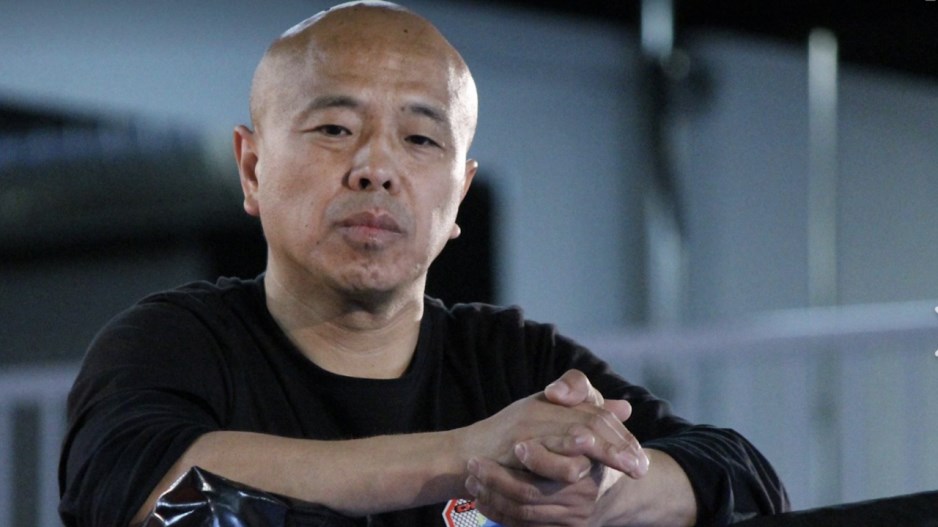A special prosecutor who was secretly appointed almost a year ago to consider charging Richmond money laundering suspect Paul King Jin has concluded there is no substantial likelihood or reasonable prospect of conviction.
The BC Prosecution Service made the announcement Wednesday afternoon, shortly after Prime Minister Justin Trudeau and Premier David Eby completed a health-care funding news conference. The service released a letter that Eby wrote in November 2021, while he was attorney general, directing Assistant Deputy Attorney General Peter Juk to appoint a special prosecutor.
Victoria criminal lawyer Chris Considine was retained in March 2022 and his clear statement, also released Wednesday, gave reasons for his decision.
“I have come to the difficult conclusion that I will not be approving charges arising out of the E-Nationalize investigation. Given the wording of the [Proceeds of Crime (Money Laundering) and Terrorist Financing Act], the absence of a link between [Jin’s] cash and true criminal activity, as distinct from unlicensed activity, is the principal obstacle to a successful prosecution,” Considine wrote.
“Regrettably, the challenge of proving a viable predicate offence, given the wording of the current legislation, combined with the complexity of an enormous data set in a foreign language, have conspired to make the prospects for conviction poor, despite the best efforts of many dedicated officers.”
The B.C. government isn’t finished with Jin. Last summer, the director of civil forfeiture filed a fourth lawsuit against Jin, seeking to seize real estate allegedly obtained via proceeds of crime.
Eby’s direction to Juk mentioned that Crown counsel had rejected the charges recommended by the Joint Illegal Gaming Investigations Team (JIGIT) of the Combined Forces Special Enforcement Unit (CFSEU). The anti-organized crime squad said Jin should be charged with participating in the activities of a criminal organization, possession of currency and bank drafts obtained by the commission of an indictable offence and laundering currency and bank drafts, and knowing or believing that all or part of that property was obtained by the commission of a designated offence.
While Crown counsel believed there was a possible path to prosecuting Jin, it decided there was not a substantial likelihood of conviction and the public interest did not require prosecution because the length and expense of prosecution.
Eby’s letter explained that CFSEU appealed the Crown’s charge assessment decision to Juk, who concluded he should not interfere with or overturn the Crown’s decision. Juk briefed Eby, who then used his authority as attorney general under the Crown Counsel Act to direct Juk to find a special prosecutor.
“Money laundering poses a threat to financial integrity in British Columbia and nationally. If there is a viable path to prosecuting Mr. Jin for money laundering or related offences and no prosecution is undertaken, public confidence in the justice system could be damaged,” Eby wrote. “If there is a viable path to a prosecution, it is my opinion that there is a strong public interest in conducting a prosecution.”
Considine’s clear statement said investigators identified 10 events, in which Jin moved $2.4 million between February 2017 and May 2017, a time when his alleged money laundering “was most robust.” They traced the chain of communications and transfer of funds to demonstrate that cash Jin obtained was the result of an offshore transfer of funds.
“The investigation revealed that between February 4 and May 19, 2017, [Jin] received approximately $5.4 million in bulk cash from [persons] A and B; provided over $6 million in cash, bank drafts or casino chips to clients; and arranged for the deposit of approximately $7.2 million into the Chinese bank accounts associated to A and B,” said Considine’s statement.
Investigators proposed eight charges and Considine said he found allegations of possession of the proceeds of crime and money laundering the most significant, but gaps in Canadian law would have made prosecution difficult to establish that the money in question was actually dirty money.
“While it is possible to identify on paper a theoretical legal path to conviction, my instincts tell me a prosecution is likely to founder. The public interest would not be well served by embarking on an expensive and lengthy prosecution that comes to naught.”
A similar investigation, which also involved Jin, was called E-Pirate and began in February 2015. Caixuan Qin and Jian Jun Zhu, the two principals of a Richmond underground bank called Silver International, were set to stand trial, but the charges against them were stayed in November 2018 after errant disclosure of a police informant’s name.
Zhu was murdered in a Richmond sushi restaurant in September 2020 while seated next to Jin. Jin survived his injuries. Yuexi “Alex” Lei and Richard Charles Reed were charged with first-degree murder.
In his final report on money laundering in B.C., released last June by Eby, Commissioner Austin Cullen called E-Nationalize a “groundbreaking investigation into a sophisticated money-laundering operation” and he spent extensive time in the report analyzing evidence about Jin. The public inquiry into money laundering in B.C. examined the links between casinos, real estate and drugs, a phenomenon that an Australian criminologist dubbed “the Vancouver model.”
Jin’s lawyer, Greg DelBigio, was granted participant status to question witnesses at the public inquiry. Jin, however, was not called to testify.
Considine recommended federal legislative changes to crack down on unlicensed money services businesses. He noted that it is criminal to not obtain a licence, but the law does not explicitly criminalize the operation of an unlicensed money services business.
Considine also said JIGIT did not have access to legal advice from two senior Crown counsel during their investigation and would benefit from a closer relationship with Crown.




